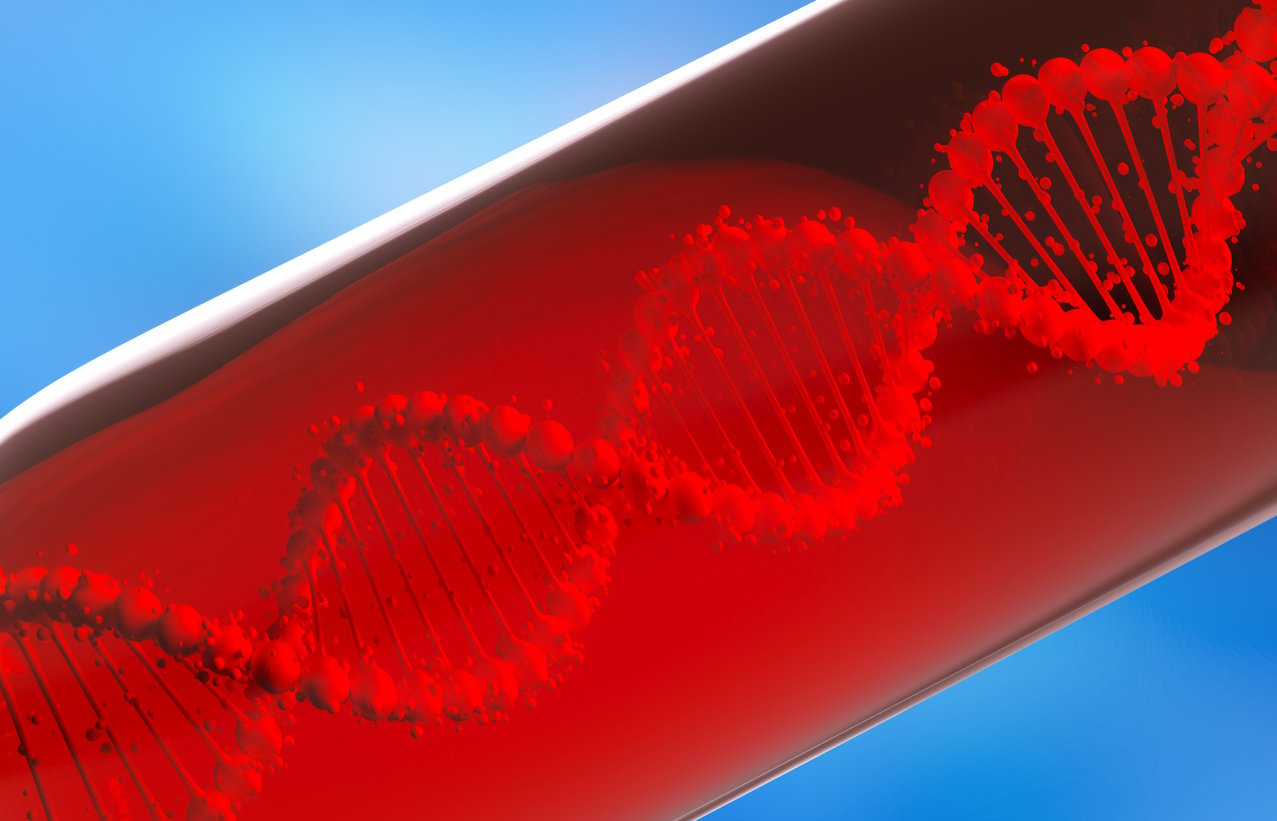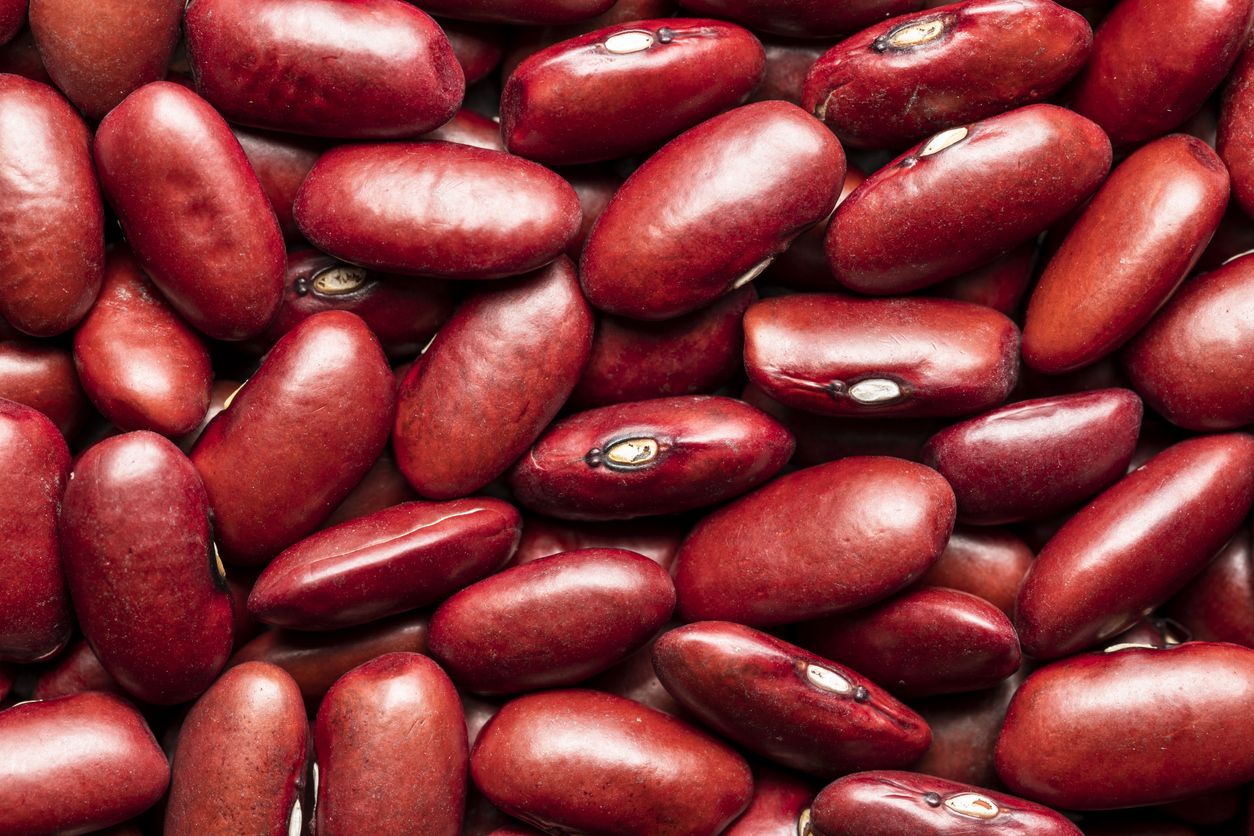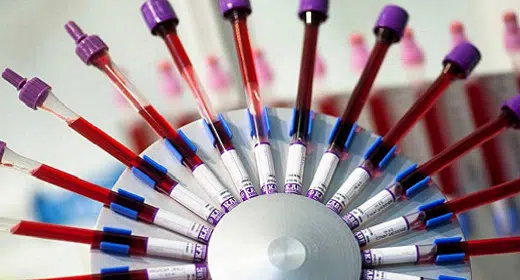by Ocean Robbins: In the 17th century, the European medical world was abuzz with the possibility that blood could be transfused from one organism to another…
We are proud to announce a new partnership with John and Ocean Robbins and the Food Revolution to bring our readers Summits, Seminars and Masterclasses on health, nutrition and Earth-Conscious living.
Sign Up Today For the Healthy Heart Masterclass
The British had done some dog-to-dog transfusions, and their archrivals, the French, decided to up the ante by transfusing lambs’ blood into human beings. The court physician to King Louis XIV, an ambitious experimenter named Jean-Baptiste Denis, tried in 1668 to cure an infamous Paris “madman” by giving him serial transfusions. When the second procedure proved fatal, with the subject shaking in a violent fit and dying the next day, Denis was arrested. After a trial and inquiry, the practice of transfusion — even human to human — was prohibited, and it remained a rare occurrence for the next 150 years.
Although the reasons for the man’s death were not understood until the late 19th century, it’s pretty clear that the problem was what’s known as a hemolytic transfusion reaction. Which is to say, the man’s immune system rejected the infused blood, killing the red blood cells as if they were dangerous foreign invaders. In 1901, biologist Karl Landsteiner discovered different kinds of antibodies in human blood, which gave rise to different blood types. He named these types A, B, and O (and a fourth, AB, was identified a year later).
This discovery has saved a lot of lives, making possible the safe transfusion of blood for people in a wide variety of dire circumstances: serious injuries, surgeries, some cancer treatments, high-risk childbirths, and blood disorders.
It’s also given rise to a movement that claims your blood type is a key factor in determining what kind of diet you should eat, how you should move, and even what baseline personality you will exhibit.
The Blood Type Diet has been around since the 1980s. Its core thesis is that you need distinct diet, lifestyle, and even personality advice to achieve your best health and life — based on your blood type. This way of eating has attracted millions of people looking to optimize their diets, lose weight, and improve their overall well-being. But does your blood type really have anything to do with customized nutrition recommendations, or is this just another fad diet? Is there any scientific basis for eating for your blood type? Or is the Blood Type Diet as unproven as (although far less hazardous than) trying to cure insanity with lambs’ blood?
What Is the Blood Type Diet?

The Blood Type Diet was created by Dr. James D’Adamo, a naturopathic doctor, in the 1980s and then popularized by his son and fellow naturopathic doctor, Dr. Peter J. D’Adamo. It continues to garner attention today, although its popularity has been declining over the past decade.
Based on your blood type — A, B, AB, or O — the program provides guidelines for the best types of foods to eat, what foods to avoid, stress management tips, and the most beneficial types of exercise for you. In other words, the optimal way of eating for someone with type A blood is purportedly different from someone who has a different blood type, according to D’Adamo.
The Blood Type Diet became wildly popular after Dr. Peter D’Adamo published his book Eat Right 4 Your Type in 1996. There are now multiple books in publication, like personalized cookbooks and food and supplement lists. But his original book remains a best seller, with over 7 million copies sold. And in addition to books, Dr. D’Adamo built his version of the Blood Type Diet into a major business enterprise, selling a long list of branded dietary supplements, teas, nutrition programs, and even a skincare line.
Blood Types and Their Diet and Lifestyle Claims

The Blood Type Diet claims that by following your tailored program recommendations you can learn how to best handle stress, manage weight, avoid disease, and eat better — all depending on your blood type. If you’re thinking that’s a pretty big claim, I agree. Let’s take a closer look.
Below are the basics of what the program says you should eat, how you should exercise, and what other lifestyle traits you should adopt, according to which of the four blood types you have.
Keep in mind that while the program recommends specific foods to eat and avoid for each blood type, there’s not much explanation behind them. There also aren’t studies cited for many of the lifestyle and nutrition claims the program makes.
Editor’s Note: The details outlined below are simply intended to clarify what the Blood Type Diet recommends for its users, rather than what health professionals recommend or what we at Food Revolution Network advocate.
Blood Types: A Summary
Type A: Those with type A blood, according to D’Adamo, have an extra-sensitive immune system and need to avoid stress triggers and eat a mostly vegetarian diet to “enjoy the innately settled, creative state” characteristic of type As.
Type B: According to D’Adamo, people with blood type B are innately adaptable and open. They have a strong immune system and “balanced” nervous system, and will benefit from a mix of meditative activities and more intense physical exercise. Type Bs are prescribed a very meat-heavy, omnivorous diet that excludes some grains and chicken.
Type AB: Blood Type ABs are told to address their highly sensitive digestive tract through a mixed diet: tofu, seafood, greens, and kelp are in, while no-nos include chicken, corn, kidney beans, and buckwheat. They should also keep their nervous system calm through centering physical activity and moderate exercise.
Type O: According to the program, blood type Os have a hardy digestive tract and strong immune system. On the flip side, they can overreact to novel conditions with anger and manic episodes. They are supposed to eat a high protein diet and avoid most grains, legumes, and dairy products (leaving red meat as a staple) so they can be the “strong, self-reliant leader” their blood type predicts.
What the Blood Type Diet Gets Right

Before we get to the problems with the Blood Type Diet, and indeed, there are some big ones, let’s acknowledge some of the positives.
Some Blood Type Diets Limit Animal Products
First, some of the blood types are encouraged to limit consumption of animal products and to eat “healthier.” In fact, Dr. James D’Adamo originally tried prescribing a low-fat, vegetarian diet to all his patients. But when they didn’t all consistently do well on that diet, he theorized that individual blood types might have something to do with it. So, the origins of the diet did come from prioritizing plant foods over animal foods for optimal health.
Even though a plant-based diet isn’t at the forefront of this program anymore, the blood type A diet is still primarily vegetarian, with the additions of turkey and seafood.
Dr. D’Adamo also recommends eating organically grown food, which can be a good way to reduce exposure to pesticides and contribute to a healthier and more ethical world.
The Blood Type Diet Encourages Lifestyle Adjustments
Fortunately, the Blood Type Diet recognizes that diet and lifestyle have an impact on health and disease development. Ultimately, it does focus on diet and lifestyle factors to improve health and prevent disease. And it encourages people to think about these things as interconnected, even though its choice to pin blood type as the deciding factor in how and why to change your diet and lifestyle is, as we shall see, not based on any credible evidence.
Incorporating lifestyle is an important approach to take with diet programs, as global research shows that “The combination of four key factors — maintaining a healthy weight, exercising regularly, following a healthy diet, and not smoking — seem to be associated with as much as an 80% reduction in the risk of developing the most common and deadly chronic diseases.”
Blood Type Diets Are a Form of Personalized Nutrition
Lastly, the program is a positive example of the fact that a one-size-fits-all approach to nutrition just doesn’t work. Instead, it’s a type of personalized nutrition, which at least attempts to take into account an individual’s genetic, phenotypic, medical, and nutritional factors to determine the best guidance.
The need for personalized nutrition has been explored by research. For example, in a 2015 randomized controlled trial published in the journal Cell, researchers monitored the blood glucose trends of 800 people over one week, measuring responses to 46,898 meals. They found high variability in the glucose response to identical meals, suggesting that universal dietary recommendations may not benefit everyone.
There’s certainly precedent for personalized nutrition. But the best approach likely has more to do with multiple factors like blood markers, dietary habits, body measurements, physical activity, and gut microbiota rather than blood type on its own.
Other factors, like age and stage of life, also influence someone’s nutritional needs. A perfect example of this is the differences in recommended nutrition needs between children, teens, adults, pregnant and lactating women, and seniors.
Problems with the Blood Type Diet
Despite the things the Blood Type Diet gets right, a number of serious issues are associated with this way of eating.
A Focus on Genetics

Whether you’re an A, B, AB, or O, genetics determine your blood type. But research suggests that genes are just one piece of the puzzle when it comes to your health and rarely determine your destiny by themselves.
After all, your genetics don’t account for behavior, environmental influences, or even current health conditions that may need to be taken into consideration when looking at diet, exercise, and lifestyle choices. You don’t have a gene for going for a walk, or ordering a salad instead of a cheeseburger, or whether you live in a food desert.
Furthermore, while specific genetic variants can influence how you respond to certain foods and nutrients, the dynamic also works in reverse — the foods you eat can change how your genes are expressed. A person genetically predisposed to type 2 diabetes can often avoid the disease by eating a high-fiber, plant-based diet composed of mostly whole foods. But another person without those genes can develop a galloping case of type 2 diabetes by eating the standard American diet (SAD).
Glosses Over Health Impacts of Animal Products

Next, the Blood Type Diet doesn’t address the numerous health issues associated with eating animal products, outside of whether doing so aligns with a particular blood type.
While it does emphasize whole foods and encourages buying organic, most of the suggested eating patterns still emphasize certain animal products. The type A diet is mainly vegetarian, but the reason for this is because these individuals purportedly can’t metabolize animal protein well, not because animal protein is necessarily otherwise problematic for health.
But the fact is, decades of research show that eating more plants and fewer animal products is better for your health. And this research includes people of all blood types, all ages and life stages, and countless other factors that make us unique individuals.
For example, eating a diet high in meat and dairy products is associated with the development of an array of chronic diseases. Meat is known to promote inflammation and can trigger the production of a metabolite called TMAO, which has been associated with the development of inflammatory conditions like heart disease, type 2 diabetes, chronic kidney disease, cancer, and liver disease.
Animal products are naturally high in saturated fat, which can promote the buildup of fat in your arteries, as well as an increase in your LDL cholesterol levels, increasing the risk of heart disease. Also, since animals are high on the ecological food chain, their bodies become concentrated repositories of hormones, antibiotics, and harmful environmental contaminants such as persistent organic pollutants.
And, animal agriculture harms not just the individuals who consume its products, but all humans (and most other species) via considerable greenhouse gas emissions. In fact, if the growth of the global meat and dairy industry continues as projected, by 2050, the livestock sector as a whole could contribute 80% of the planet’s annual greenhouse gas budget (set by the 2015 Paris climate agreement). I don’t care how much kale you eat; it’s hard to be a truly healthy person on a sick planet.
Blood Type Diets Emphasize Supplements

The Blood Type Diet heavily promotes its own line of supplements for each blood type and for specific health goals, such as weight loss, immunity, greater energy, or stress management.
They also have a supplement advisor program designed to “enhance your quality of life and well-being,” but it only looks at factors like your age, gender, blood type, and perceived areas of improvement, and lacks input from an actual health care advisor.
While there are certainly scenarios where supplements are helpful or even necessary, in general, you should be getting most of your nutrients from food, especially whole foods, without having to rely on supplements.
Advises Against Lectins

The Blood Type Diet advises against the consumption of lectins, a type of protein found in certain plants, including legumes, tomatoes, potatoes, soy, barley, eggplant, wheat, rice, and fruit. Thanks to the popularity of the anti-lectin diet in the 2017 book The Plant Paradox by Dr. Steven Gundry, many people are now convinced that eating lectins damages their gut microbiome and overall health.
The Blood Type Diet goes even further, claiming that lectins can specifically target different blood types and that eating the “wrong” types can lead to agglutination — or clumping together — of red blood cells, releasing toxins into the blood. However, research shows that the majority of this occurrence is not blood type specific.
There’s some evidence that certain plants may have blood group antigens. But most of the testing was done on seed extracts, not the plant itself, and this theory hasn’t been tested with the impact of these lectins on actual people, only on blood cells. Also, most of the foods to be avoided, such as beans and lentils, are typically eaten well cooked (which significantly decreases lectin activity), while the studies have been done on raw beans. This is a little like arguing that beans are bad because you can break your teeth trying to eat them raw.
Overall, the concern over lectins is way overblown, and most people can eat them safely. Just remember — and you heard it here first — to cook your red beans before chowing down.
The main problem with avoiding lectin-containing foods is that they’re some of the healthiest things you can eat: full of fiber, vitamins, minerals, and disease-fighting plant compounds. Avoiding them, as is recommended on the Blood Type Diet, could actually put you at risk for developing nutrient deficiencies. For more on lectins, read our article here.
The Blood Type Diet Lacks Scientific Evidence

One of the biggest red flags to me is that despite being around for 40 years now, the Blood Type Diet completely lacks robust scientific evidence for its claims. In fact, a growing body of evidence calls those claims into serious question. One major systematic review evaluated the claim that adherence to blood type diets provides health benefits. It concluded that no evidence currently exists to validate any purported health benefits associated with blood type diets.
Another study specifically tried “…to determine the association between blood type diets and biomarkers of cardiometabolic health and whether an individual’s ABO genotype modifies any associations.” The authors found that following certain blood type diets — but not all — reduced cardiometabolic risk factors. However, these associations were independent of an individual’s blood type, so the findings do not support the blood type diet hypothesis.
A diet based predominantly on whole plant foods, on the other hand, has been shown time and time again to reduce risk for chronic diseases and even reverse conditions like heart disease and type 2 diabetes in a great many people. And this is true regardless of blood type.
For example, a 16-week randomized clinical trial published in 2021 looked at the benefits of a plant-based diet compared to a control (omnivorous) diet. It also included a secondary analysis to see if blood type had any effect on the outcomes, since, according to Dr. D’Adamo, only type A is supposed to thrive on a mostly plant-based diet. The researchers found that blood type made no difference in patient outcome. They also found that all blood types experienced improved weight loss and overweight adults experienced improvements in cardiometabolic health — from the diet change alone.
Unlike the Blood Type Diet, there’s evidence — an overwhelming amount, actually — suggesting that a plant-based diet is beneficial for you, regardless of your blood type.
That said, there is some evidence that blood type may have an impact on the development of some cardiovascular diseases. For example, a 2020 study found that people with blood types A and B had a greater risk of an embolism from a blood clot than those with type O, while at the same time suffering less from hypertension. But remember, blood type is just one factor among many others, including genes, diet, environment, and lifestyle habits. And just because your blood type may increase your risk of a blood clot or of hypertension, that doesn’t mean that you won’t benefit from the same healthy diet and lifestyle choices that benefit people of all other blood types.
In place of robust, peer-reviewed scientific data, the success of the Blood Type Diet is demonstrated mainly by dieters’ testimonials on the program’s website and social media platforms. When it comes down to it, the reported benefits that people experience from the program, such as weight loss or more energy, could simply be from the move to eating more whole foods, exercising more, and stress management — which are all part of the protocol — rather than just “eating right for your type.”
The Verdict on Diets Based on Blood Type
Though flashy and intriguing, the Blood Type Diet is not supported by meaningful scientific data. There are currently no studies showing that the Blood Type Diet, or eating for your blood type, is beneficial to long-term health. Aspects of the protocol can be helpful, such as eating more whole organic foods, exercising more, and practicing stress management.
But restricting foods due to lectins or other perceived threats due to blood type, or eating an abundance of animal products, may in fact contribute to nutritional deficiencies or the development of disease. Thousands of studies show us that the vast majority of people, of all blood types, are better off choosing a whole foods plant-based diet — one that is full of a diversity of whole grains, vegetables, fruits, nuts, seeds, and legumes and with minimal or no animal products. The best reason to know your blood type remains for making medical decisions such as transfusions, not dietary ones.

















































